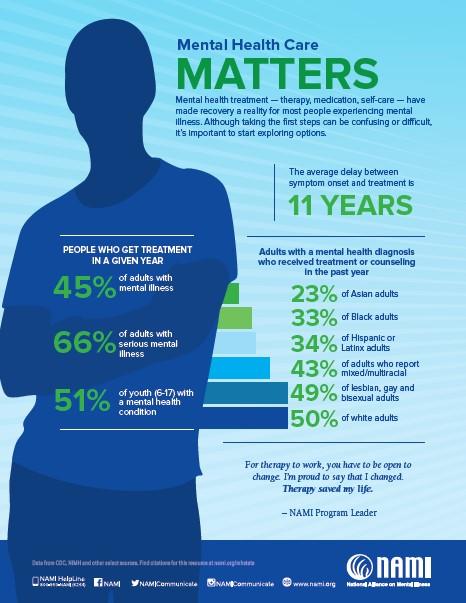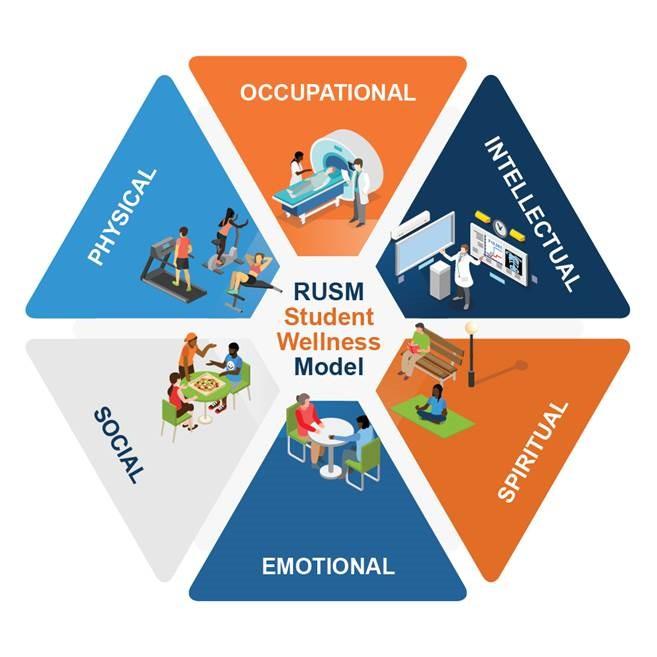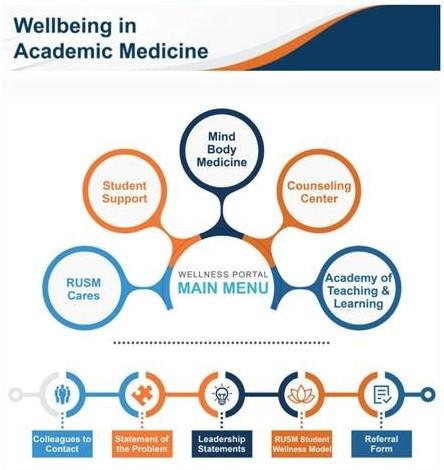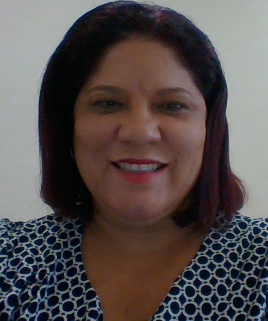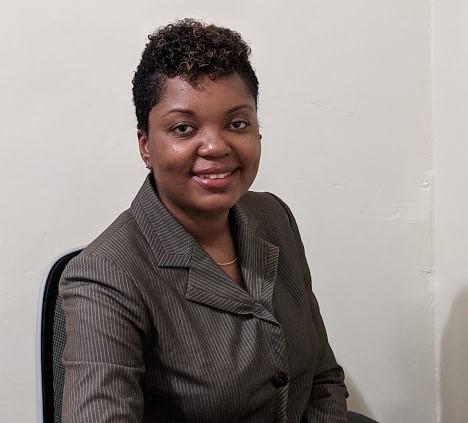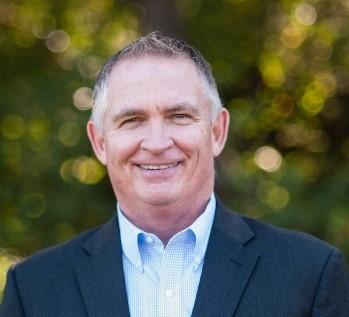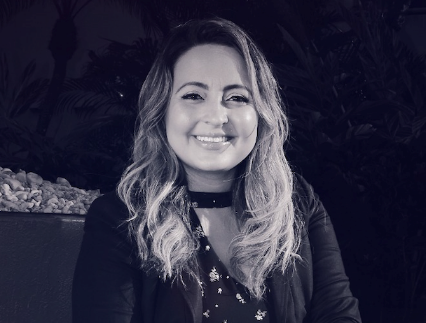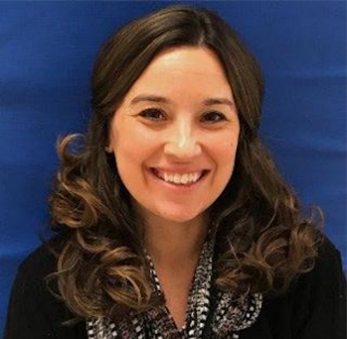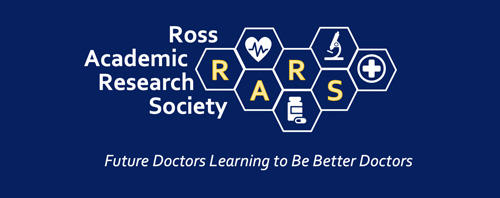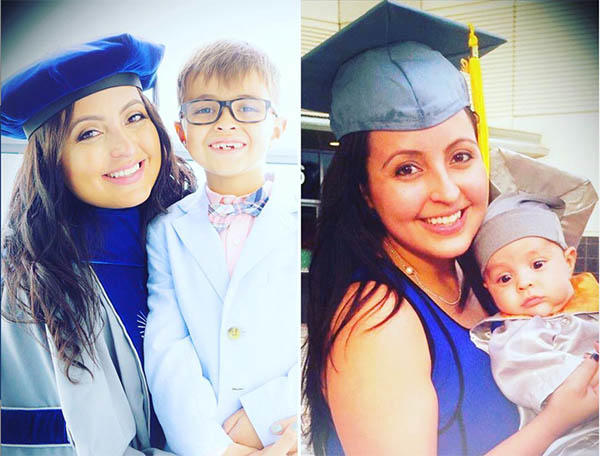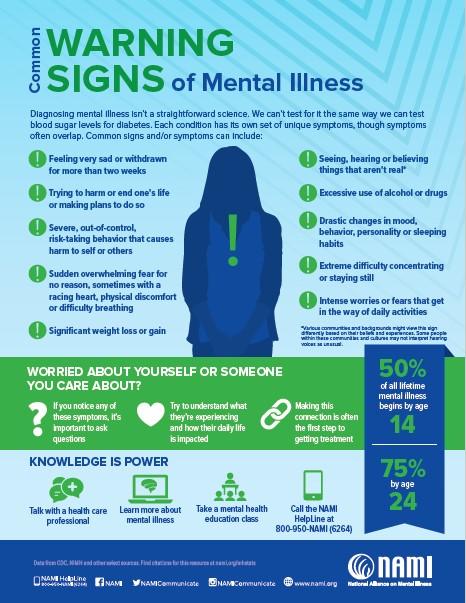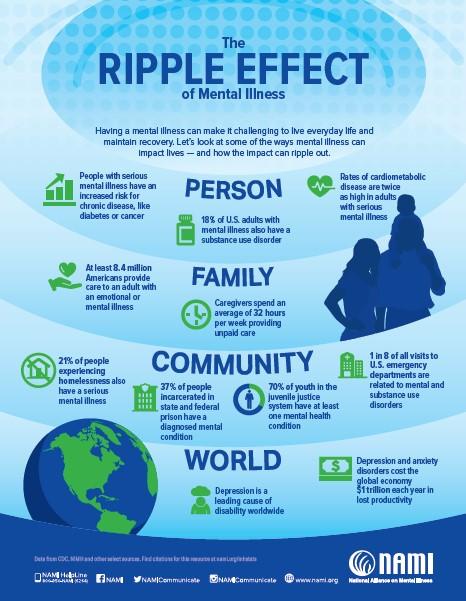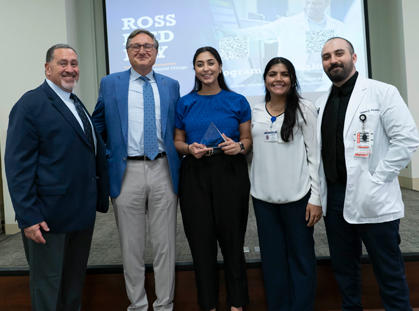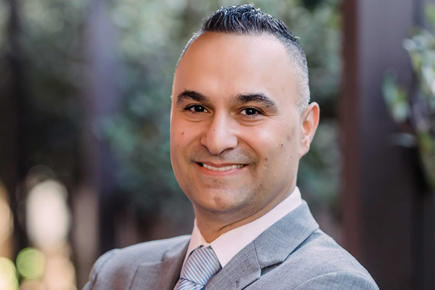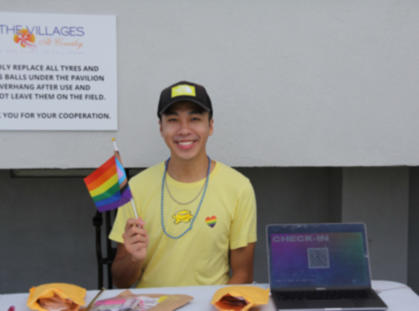For wellness support, please reach out to the National Alliance on Mental Illness / 800.950.NAMI / text “NAMI” to 741741, Substance Abuse and Mental Health Services Administration (SAMHSA) national hotline at 1-800-662-HELP (4357) in the United States or Support Services Counseling at 246-245-1622 in Barbados. You can also email the RUSM Wellness Team at rusmwellnessandcounseling@rossu.edu.
Giving yourself permission to unplug and refocus on what’s important is the first of many steps in maintaining positive mental health. Accepting challenges, embracing disappointments and moving forward are all part of the process. The most vital part of daily self-care is knowing you are supported and how to connect with others when you need guidance or individual attention.
At Ross University School of Medicine (RUSM), mental health is a top priority and we are continually monitoring what can be done to improve our offerings. As part of our wellness charge, we invite you to:
Learn about our recently launched Wellbeing in Academic Medicine course
Meet your wellness team
Read a student blog about mental health in the Black community
Understand it’s ok to not be ok and learn how wellness counselor Dr. Maria Mejia manages daily anxiety through her inspirational personal journey
Wellbeing in Academic Medicine Course
To promote wellness and underscore its importance for RUSM physicians in training, leaders at the university developed a new course, Wellness in Academic Medicine, which launched last month. All students are automatically enrolled in the wellness portal resource class now available on Canvas.
“We want students to understand the importance of their own well-being and how it relates to caring for patients,” reminds Robert Gee, EdD, assistant dean of student affairs and professor of behavioral sciences, and one of the program creators. “Self-care is a foundation for all patient care.”
Realizing the need for a centralized source for wellness, RUSM colleagues teamed with experts from affiliate institution, Chamberlain University, to create the program.
The main menu offers students several support options — RUSM BIT/CARE Team, Student Support, Mind Body Medicine, Wellness & Counseling Center and the Academy of Teaching & Learning. Throughout the course, students can learn more about the six well-recognized dimensions important to a person’s well-being.
Wellness Resources
In addition to online support, the RUSM Wellness & Counseling teams are available to support students one-on-one or through webinars, workshops and other activities. Wellness resources — free and confidential — are available for both medical and clinical science students. For more information, please email rusmwellnessandcounseling@rossu.edu. Students can also connect with campus leaders by email.
- Dr. Gee — Professor, Behavioral Sciences; Assistant Dean, Student Affairs
- Dr. Gibson — Director, RUSM Wellness & Counseling Center
- Dr. Helgoe — Associate Professor, Clinical Foundations - Behavioral Sciences
- Dr. Knight — Associate Professor, Clinical Foundations - Behavioral Sciences
- Dr. Mejia — Clinical Sciences Counselor / Consultant RUSM Wellness & Counseling Center
For technical assistance, students should contact the Barbados IT Helpdesk or Miramar IT Helpdesk.
Meet Your Wellness Team
Personal support is available both in Barbados and throughout the United States. Here’s a quick glimpse into those who can best guide you along your wellness journey.
Barbados Wellness Team
Dr. Dahlia Gibson, Director
“The opportunity to work in a meaningful way with students to successfully navigate the journey to become a physician has been an honor for me. Mental health and holistic wellness are vital components to reaching such a destination. As a counselor and health and wellness coach, I get to offer an integrated approach to the promotion of overall wellbeing. Prioritizing your mental health is the number one thing you can do for yourself and your patients. We are here to work with you, to support you and ultimately empower you to be your best self.”
Mrs. Chikere Thomas, Medical Sciences Counselor
“Our work is gratifying; the interaction with students helps to reinforce the importance of daily wellness. Our team can help you to actively make choices to create and maintain balance as you navigate medical school. Balance can be achieved by prioritizing dimensions of wellness (social, physical, emotional, spiritual, intellectual/occupational). For example, journal down your thoughts and worries, and ensure to stay connected with your family and friends frequently to avoid isolation.”
United States Wellness Team
Dr. Robert Gee, Assistant Dean, Student Affairs; Professor, Behavioral Sciences
“Our work is hard, consuming, and draining. Our professional standards, ethics, and patient care demand excellence. At times, it can be easy to think we have to be perfect and, consequently, feel like we let our family or others down and have failed. Reaching out about your personal and/or professional challenges can help your friends and colleagues to do the same. Please reach out to someone you trust and a member of the RUSM Wellness teams — we are in this together. The life and/or career you save may be your own.”
Dr. Maria Angelica Mejia, Clinical Sciences Counselor
“Choose courage over comfort” — Brene Brown
“Physicians are made not by having it easy. Physicians are made when they recognize the human needs in their patients and in themselves during the most challenging of times, the human need of social connection and empathy. Once you are able to seek out help when needed and connect with your empathy, you become resilient. Once you can become resilient, you can handle anything that may come your way as a physician.”
Dr. Amy Martinez, Clinical Sciences Counselor
“Happiness is the highest form of health” — Dalai Lama
“As you navigate the challenges of medical school, please consider RUSM Wellness as a resource for support and personal growth.”
The Importance of Mental Health Awareness in the Black Community
By Trust Oliver, RUSM student, RARS
The words “mental health” can mean a variety of things to different people. According to the World Health Organization (WHO), “Mental health is a state of well-being in which an individual realizes his or her own abilities, can cope with the normal stresses of life, can work productively, and is able to make a contribution to his or her community.” Yet, in the Black community, the state of well-being to cope with normal life stressors is determined by our forefathers who endured far worse pain without ever addressing their issues. We, as Black people, are prone to believe that having a mental illness is a personal weakness or a plague from above. Besides our own belief system, there is an everyday struggle with racism (Williams, 2017). Our belief mixed with generational mistrust in the medical system hinders those with mental health illnesses from reaching out for help. Instead of seeking help before there is a problem, we deal with the repercussions of a mental breakdown because the stigma is too powerful to be broken. It is time we start addressing the elephant in the room.
Dr. Maria Mejia — I Learned to manage paralyzing anxiety and Now Help Others Do the Same
The anxiety merry-go-round is draining but not being able to control or break free from the constant spin can crush the spirit and create havoc on the body. Painfully aware of this reality is RUSM Wellness Counselor Maria Mejia, PhD, who knows firsthand the atrocities of burn out and the importance of creating a ‘new normal’ for future physicians.
“I have constantly been afraid of doing the wrong thing since I was eight years old and we had to leave everything behind,” said the Colombian native whose family was forced to abruptly flee the country because of kidnapping attempts and violence. That was four years after she witnessed her first traumatic event in which her then pregnant mother almost died, which caused Maria to develop a stutter. “It was the first time I experienced anxiety. When we moved to the United States and had to adapt to this culture, I was told failure was not an option, so I always had the pressure of being the perfect, ideal student. I thought if I just keep busy, I can manage my anxiety.”
At the time, mental illness was not a subject readily discussed so Maria found creative ways to fill her day, not allowing herself moments of quiet because that may trigger an attack. She started working at a shopping mall at 14 years old; her schedule consisted of school from 7 am to 3 pm, work from 5 to 10 pm, homework from 11 pm to 1 am, then sleep and repeat. “The more I kept busy, the more I thought I was keeping ahead of the anxiety. I started getting physically sick but not too much.”
RUSM Support / Resources
Please visit the RUSM Wellness & Counseling Center webpage to learn about upcoming wellness sessions and email the Center to schedule a free and confidential appointment. If you need additional support, please call the Substance Abuse and Mental Health Services Administration (SAMHSA) national hotline at 1-800-662-HELP (4357) in the United States or Support Services Counseling at 246-245-1622 in Barbados.
Other Mental Health Pieces
Following are other wellness pieces that highlight RUSM community members advocating for positive mental health:
Alum Dr. Samuel Williams
Alumna Dr. Katie Angelova
Alumni Drs. Bop ’n Pop
Learn More
According to the National Alliance on Mental Illness, millions of people worldwide are affected by mental illness. We all have the power to make an impact by busting through the stigma, raising awareness and advocating for better healthcare. If you need immediate assistance, please call the NAMI Helpline at 800.950.NAMI or text “NAMI” to 741741.

